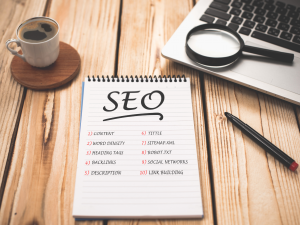Website performance is the key to its success. If your website does not rank well in the search engines or just doesn’t seem to pull in the traffic and sales you desire, it is time for a website audit.
Conducting an SEO audit of your website can help you find areas of your site that may need improving at a more technical level. A thorough website audit will look at many different parts of your site to see how each area is performing.
Steps To Take To Complete A Website Audit
Auditing your website should be done quarterly. Search engine algorithms and market trends continually change. When you audit your site quarterly, you can ensure that you are staying up to date with all of the latest trends and requirements.
Auditing your website may sound like an overwhelming task, but there are many tools available that you can use to help speed the process. Many of these tools are free, and most are very easy to use.
When auditing your website, make sure that you check each of the following areas:
- Mobile-Friendly
Over 60 percent of all Internet searches are now performed on a mobile device. You must make sure that your website will appear and work on mobile devices. If your website does not work for mobile or if it performs poorly, you will lose ranking in the search engines.
- Conflicting URL
You want to examine your URL’s to make sure that they are not conflicting between mobile and desktop versions. You will also want to make sure that ALL of your pages are HTTPS instead of HTTP. Having conflicting pages can cause lower rankings. Sites that are not registered as secured will also lose rank.
- SEO Checking
It will be necessary to check the content of each of your pages. There are tools available that can help you distinguish if a page has enough information, if it has proper titles and meta tags, and if the content is considered duplicate content from other areas of your site. Similar content or complementary content is not considered a duplicate. You never want to have the exact same information on two pages of your site, even if it is a product description if you need to describe a product that is located on another part of your site, put in an internal link instead of duplicating content.
- Review Links
Internal and external links are an important part of your content. It is important to review all the links contained within your site periodically to make sure that they are still working. Broken links can impact your search engine ranking.
- Check Site Speed
How quickly your site loads on mobile and desktop applications is very important. Sites that take too long to load will have a high bounce rate. There are tools available that you can use to test your site speed. You may need to change things like your images, videos, browser cache, and similar things to help your site load faster.
- Check Social Media Features
You will want to make sure that your site is connected to social media and that your pages show properly on those platforms. Backlinks from a social media post are useless if the person clicking on them cannot access your site. There are several tools available that will check your presence and viewability on social media sites.
- Refresh Content
Of course, having up to date and fresh new content is very important. In the past, it was encouraged to write “evergreen” content for a website so that the information stays relevant. In reality, very few things are evergreen. Make sure that you conduct audits of your content and make sure that they are relevant for today.
- Analytics
Once you have completed these other tasks, you must devote some time to your overall site performance. Look over the analytics of your site to see what pages and keywords are performing best, and what is not driving traffic at all. You can learn a lot about who uses your site, why these come to your site, and what they are looking for when they are there. All of this information is crucial to fine-tuning your content and improving site performance.
Website Auditing Will Improve Overall Site Performance
At first, auditing your website may seem like an overwhelming task, especially if you are new to operating a website. The good news is, there are many tools that can simplify the process, and audits become easier with practice.
Many of the things that you have to change during your first major website audit will not have to be dealt with again in the future. Ensuring that the pages have headings and meta tags is an example of something you will only need to do once.
Additionally, the more that you are involved with your website, the less you will have to change come auditing time.
Many website owners will conduct mini-audits monthly so that they can keep their site ranking high. These mini audits usually only consist of reviewing analytics and making any necessary changes. The major audits take more time and are more in-depth, so they should be reserved for quarterly reviews.

Believe It – Your Competitors Are Auditing Their Sites
Auditing your website may not be on top of your to-do list, but it should be if you are serious about keeping the rankings high for your site. Your competitors are auditing their own sites, so it is imperative that you do this as well.
If you are unsure about auditing your own website, it may be beneficial to work with a professional service. Many companies that build websites will offer SEO services and complete auditing on the sites that they manage.
Success on the Internet is more than just having the biggest and best website. It is about having relevant and current information that is easily accessible from different devices and provides the end-user with the best experience. Auditing your website n a regular basis helps you achieve these goals for success.









